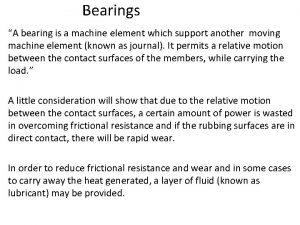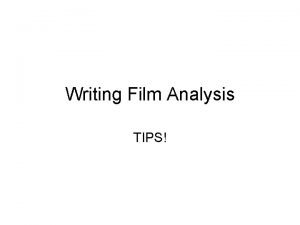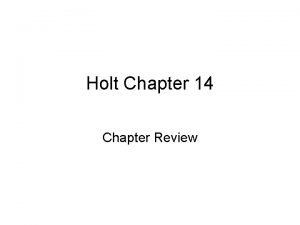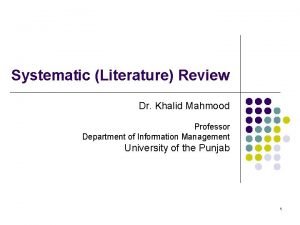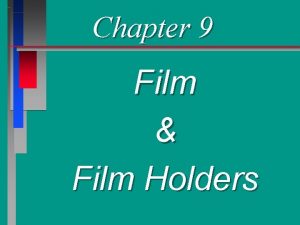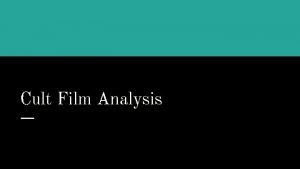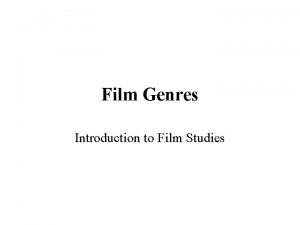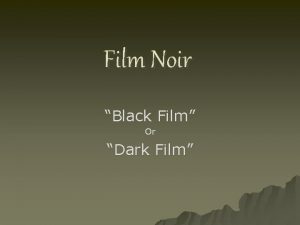HOW TO WRITE A FILM REVIEW A FILM








- Slides: 8

HOW TO WRITE A FILM REVIEW

A FILM REVIEW HAS 5 MAJOR COMPONENTS 1. Introduction 2. Plot Summary 3. Description 4. Analysis 5. Conclusion/Evaluation

Components of the Intro INTRODUCTION • Start with a hook – A striking image, key piece of dialogue or important moment from the film. Questions to ask • Provide some basic information about the film. You may include film’s name, year, • What moment in the film best director, screenwriter, and major actors. encapsulates the big idea of the movie? • Allude to the central concept of the review. A film review does not have to contain a thesis or main claim, but it should focus on • Who are the key creative forces involved? a central analysis and assessment. • What has been the legacy/reaction to the film?

PLOT SUMMARY Components of a Summary Questions • BRIEF synopsis of the plot. • What happens in the movie? • Avoid spoilers if possible. • Who are the major characters? • What are the major conflicts?

DESCRIPTION Components • While the plot summary will give the reader a general sense of what the film is about, also include a more detailed description of your particular cinematic experience watching the film. • include your personal impression of what the film looks, feels, and sounds like. Questions? • What stands out in your mind when you think about this particular film? • Moments that are particularly styalized/different/noteworthy?

ANALYSIS Components • Take those descriptions an analyze them for meaning/intent. • Some form of consideration of the meaning of the formal techniques and thematic content. Questions • How do the film’s formal techniques (such as cinematography, editing, mise-en-scène, lighting, diegetic and non-diegetic sound, genre, or narrative) affect the way the film looks, feels, and sounds to you? • How does thematic content (such as history, race, gender, sexuality, class, or the environment) affect your experience and interpretation? • Do the formal techniques work to forward thematic content?

CONCLUSION/EVALUATION Components • The closing of your film review should remind the reader of your general thoughts and impressions of the film • You may also implicitly or explicitly state whether or not you recommend the film. • Make sure to remind the reader of why the film is or is not worth seeing. Questions • How did it all add up? • Did it have an emotional effect on you? Do you think it would feel the same for others?

READ OTHER FILM REVIEWS • One of the best ways to learn how to write a film review is simply by reading good film reviews. You can find examples in most major newspapers and magazines. Check out the arts and entertainment sections of The New York Times, The Washington Post, The Guardian, The New Yorker, The Atlantic, or Rolling Stone
 What to include in a film review
What to include in a film review Wedge film journal bearing
Wedge film journal bearing Look at the film posters and write
Look at the film posters and write How to write a film analysis
How to write a film analysis Chapter review motion part a vocabulary review answer key
Chapter review motion part a vocabulary review answer key Writ of certiorari ap gov example
Writ of certiorari ap gov example Narrative review vs systematic review
Narrative review vs systematic review What is inclusion and exclusion criteria
What is inclusion and exclusion criteria Narrative review vs systematic review
Narrative review vs systematic review

